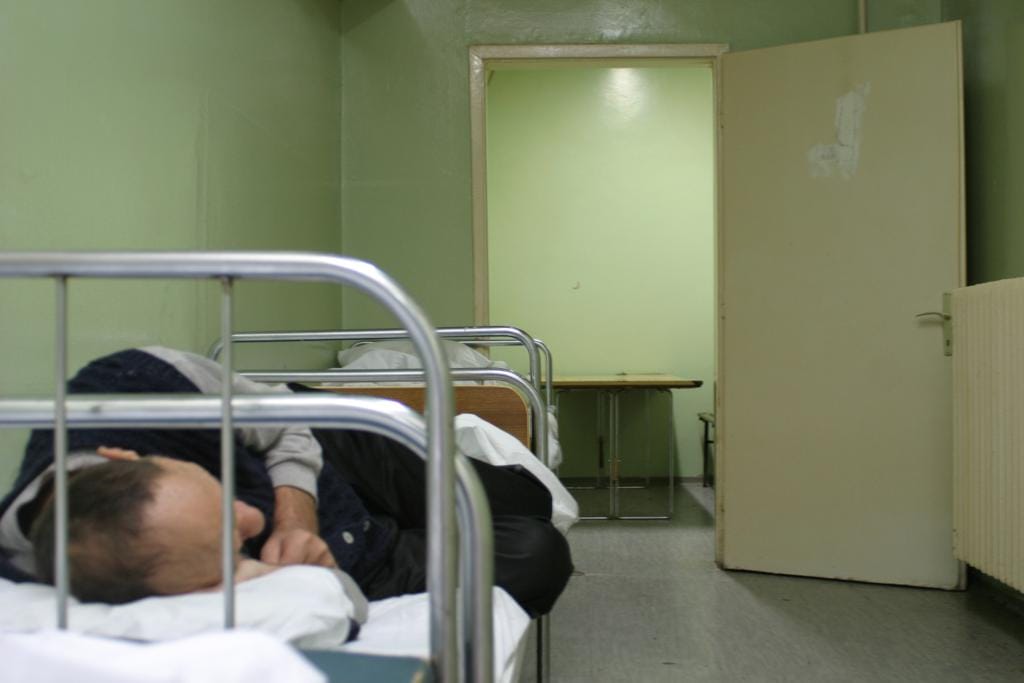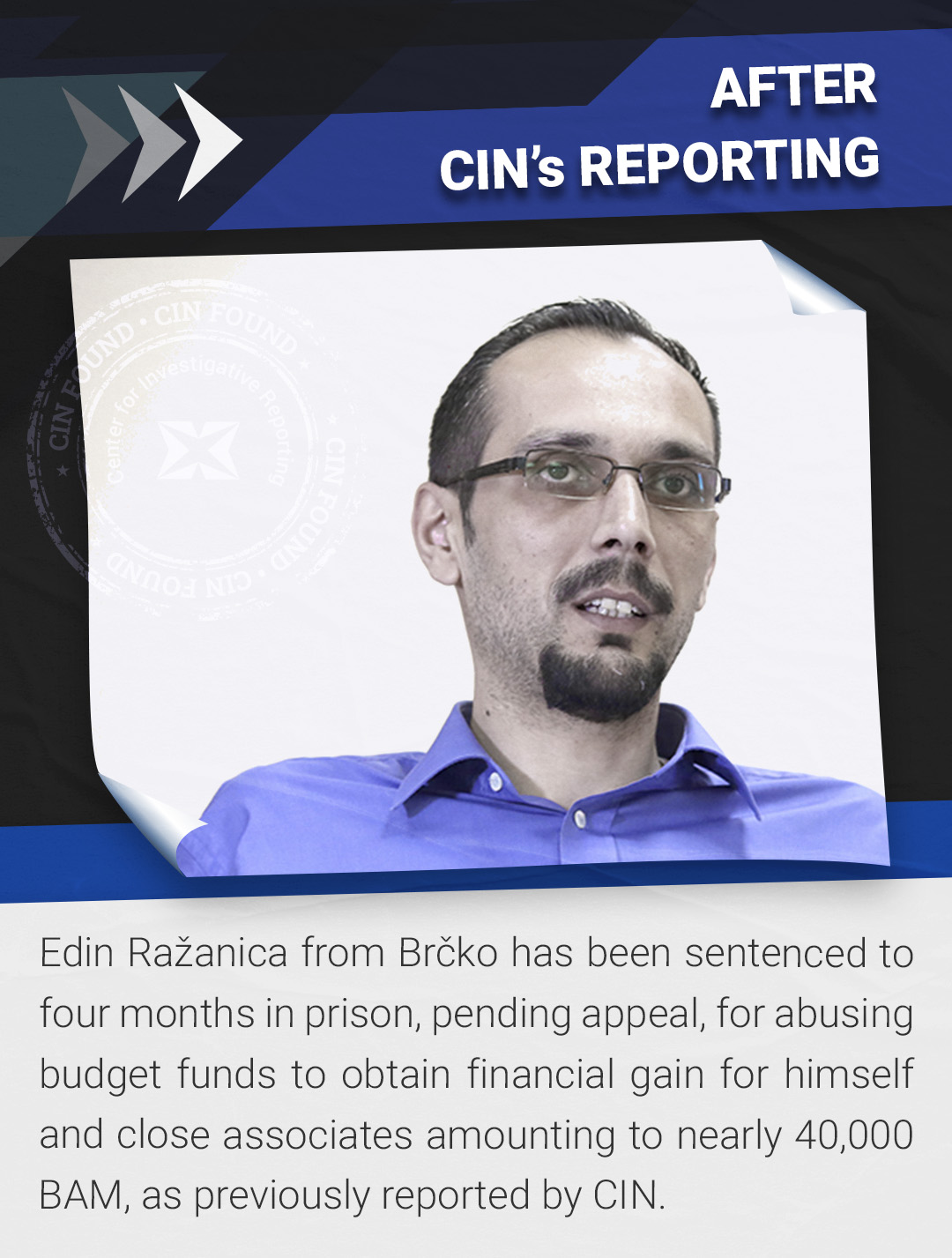If you are one of the approximately 3 million BiH citizens with government health insurance, it may not seem like it pays for much if suddenly you should need serious health care. Consider the case of Žarko Bojić.
When he signed a consent form in 2002 to have surgeons remove his right leg below the knee, the Hospital Kasindol staff in East Sarajevo gave him a list of equipment he was expected to bring to the amputation.
Among the items: Plastic gloves for the doctors, anesthetics so he would not feel the surgical saw as it went through the bone, and intravenous solution so he would not die during the operation. All of the items are supposed to come from the government health care system, not from whatever income Bojić’s family can spare.
‘The fact that I had regular health care insurance did not help much’ Bojić said. ‘Even today I need to buy many medications and I really have a hard time finding money for them.’
The lack of equipment and supplies in BiH hospitals and clinics, despite 987 million KM in spending last year, is an example of the waste and inefficiency that is bankrupting this country’s health care, according to health officials.
For six weeks, a team of 10 reporters from the Center for Investigative Reporting in Sarajevo (CIN) talked with medical officials, patients, doctors, nurses and experts in both entities to find out why the health care system is infamous for its lack of care of its patients.
The team found that medical staff throughout the country do not have the tools to do their jobs, and patients are suffering as a result. A lack of resources in difficult postwar economic times might be an explanation, frustrated medical workers told the reporting team, if it weren’t for the fact that much of what they need could be bought with what is wasted and lost from simple neglect. Meanwhile, many health administrators claim they are powerless to do anything about the inefficiency. Other administrators have given up waiting for help from government and started to try reforms on their own.
The equipment problems are basic and life threatening.
For example, Dr. Abdulah Nakaš, the president of the Union of Health Workers in the Federation of BiH (FBiH), said the suturing tool he uses to close wounds is worn and uncontrollable, which makes the job dangerous.
‘Although I want to do something one way’ Dr. Nakaš said, ‘the outdated equipment does it its own way and that can be fatal to the patient.’
According to the FBiH Health Fund report for 2003, all the entity’s funds together budgeted 51 million KM, 6.5 percent of the total budget, on medical equipment.
But only 10 million KM was actually spent for this purpose. The remaining 41 million KM, according to the report, was spent on other unspecified costs.
Meanwhile, health institutions across the Federation are struggling to provide a minimum of health care without basic equipment.
In Sanski Most, the health center lacks X-ray, ultrasound, gastroscope, heartbeat recording and other machines, said a United Nations Development Program (UNDP) report on BiH health equipment. The total funds the center received last year from the cantonal insurance fund were 212,000 KM. That was just enough to cover office supplies and employee wages.
The lack of a kidney dialysis machine to clean his blood in Sanski Most means Fehim Hukić has to make a four-hour round trip three times a week to a Bihać clinic. In Bihać he spends five hours on the dialysis table.
‘These journeys to Bihać are so exhausting that I can barely move when I come home’ Hukić said.
In Odžak, citizens are unknowingly risking their lives if they need the services of one of only two old ambulances, which do not have necessary emergency equipment, said Anto Majić, director of the Odžak Health Center.
Team reporters tried to find out how much the RS spent last year on medical equipment. But health officials apparently cannot find the number in the incomplete financial records of the RS Health Care Fund and the RS Ministry of Health, said Marin Kvaternik, RS minister of health.
But the newly-appointed director of RS Health Care Fund, Nebojša Zgonjanin, said that nearly 2 million KM will be invested in the procurement of medical equipment in 2004.
But RS medical care staff described a situation as difficult as in the Federation.
Perhaps the psychiatric ward at the Banja Luka Clinic, which lacks everything from drugs to even a decent building, according to a psychiatrist, is the most striking example of the decrepit state of RS facilities.
‘In most of the cases we cannot provide the patients with adequate therapy’ said Dr. Tibor Danelišen. ‘We have no instruments necessary to establish an accurate diagnosis or the combination of medications needed by the patient.’
The clinic does not have any of the latest generation of anti-depression drugs or the anti-psychotic drugs for more serious cases, Danelišen said.
The lack of drugs recently led to a patient’s attack on a ward nurse, Danelišen added.
The psychiatric patients are housed in dilapidated huts, with a few inches separating eight beds in each room, a bare light bulb underneath a leaky ceiling in a bathroom and sheets sometimes covering the windows.
Like in so many cases in both entities’ health systems, reform was planned and promised but never delivered. Construction of a new psychiatric ward began last year.
‘The initial price of the project was evaluated at 17 million KM, but we cut it down to 3 million KM’ said a frustrated Danelišen. ‘All the construction works have been postponed.’ Nobody knows when it will begin again, added Danelišen.
Danelišen blamed officials of the RS Health Care Fund and the RS Ministry of Health for the delay of the project.
Health ministry officials said the delay was unavoidable because of lack of funding.
In the FBiH, the director of the Bureau for Public Health said that at least the system is not wasting resources. Every hospital, for example, does not need a brain-scanning device, director Zlatko Vučina said.
‘The situation would be even worse if you had a lot of equipment which you cannot use’ Vučina said. ‘Having too much apparatus can be a problem too.’
But a Vitez dentist would just like to be able to update his equipment, even if it means spending his own money. Most private dentists buy used equipment because of the high cost of modern technology, said Dr. Bruno Buzuk. He was willing to spend his own money to get better equipment to benefit his patients.
‘I gave up on procurement of new equipment from the U.S. worth 55,000 KM, because I would have had to pay 35 percent (import tax)’ Buzuk said. ‘There is something wrong with our state.’
It is not only doctors and administrators who seem to have accepted that the situation cannot change.
A Sanski Most dentist at the public clinic said that his patients do not give his decades-old equipment a second look.
‘Our patients are not dissatisfied with our services’ said Dr. Ismet Ćehajić. ‘As a result of war they are used to a very bad situation, but we are making all efforts to receive them in the best possible manner.’
In fact, without the support of international donors the situation might be far worse, and the inside of health institutions in BiH would still look like they did during wartime.
Between 1997 and 2001, 7.4 million KM and 6.2 million KM were donated to the FBiH and the RS, respectively, for the procurement of medical equipment and supplies, according to a World Bank report. Donations were provided by Greece, Italy, The Netherlands, Great Britain, USAID and the World Bank with very favorable loans.
But many health professionals are asking how much more could be done by BiH itself if health officials implemented simple financial controls. They could also expand some of the solutions that individual health officials have tried, rather than wait for new entity, or even state, health policy.
RS prosecutor Zoran Lipovac said he has filed charges against the former director of the Banja Luka clinic for giving out a no-bid contract for a medical machine, which allegedly cost 62,000 KM more than necessary. The former director has denied the charges.
The director’s successor, Dr. Dragan Kostić, has tried other methods to tighten financial controls on the procurement of supplies.
For example, the clinic had no control over the purchasing of drugs.
‘The practice was that the person assigned on behalf of the clinic went to the pharmacy and bought the needed drugs’ Kostić said. ‘We never kept records of what medicines had been spent for treatment of certain patients.’
Kostić required a record of all drugs bought and used. He also required that all drug purchases be tendered and bought from the lowest bidder. The process has reduced the clinic’s drug costs by 50 percent, Kostić added.
One of the questions for health care policy makers is how some institutions do manage to get new equipment without promised money from the entity governments or international donations.
The Urgent Care Center in Tuzla bought a brain scan machine for 2 million KM this year. The total value of all the existing medical equipment in the FBiH is only 123 million KM. The center used its own income from co-payments and other sources to pay for the machine.
At Sarajevo Canton Hospital, co-payments are also used to buy equipment and repair the facilities, even though the money is supposed to come from the cantonal insurance fund.
‘That (canton funding) is only on paper’ said Dr. Bakir Nakaš, director of the hospital. ‘We never get money for that purpose.’
The medical workers’ union president, Dr. Abdulah Nakaš, Bakir Nakaš’s brother, said that reform of the system should go much further than squeezing a few KM from clinics’ and hospitals’ meager revenue flows.
Nakaš said his idea of reform would be a state-level single health system with competitive market forces. The most popular doctors would win better salaries and better conditions.
‘The successful institutions would be able to buy necessary equipment and the unsuccessful ones would close down’ Nakaš said.
Nakaš and others, however, do not believe reform has much of an audience at the policy-making levels of the entity health care systems.
‘Who’s Lučić?’ Nakaš said facetiously, when asked if he suggested his ideas to FBiH Health Minister Tomislav Lučić. ‘Personally, I believe that he is not much interested in this.’
‘I have never met with the union’s representative’ Lučić said.
Lučić added that his job is to meet with senior-level officials, such as the coordinating council of cantonal health ministers.
Nakaš said the workers’ union usually does not talk to Lučić either, preferring to talk to the cantonal ministry of health.
‘They listen to us only when they have to, and vice versa’ Nakaš said.
Meanwhile, communication between administrators and health care workers seems to have been established in Brčko District. The Brčko Health Care Fund director said that it had no problem spending 500,000 KM of the 40-million-KM health care budget on medical equipment.
‘We are buying a CT scanner, completely adhering to the tender principles… (and) we will also purchase computers and other equipment’ said director Aleksandra Tučić. ‘We have recently reconstructed the laboratory, and bought a heart monitor.’
The key to having enough funds for equipment and supplies, she added, was simple.
‘We keep track of all the funds spent’ she said.







